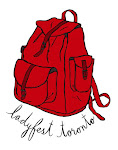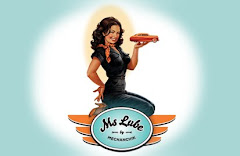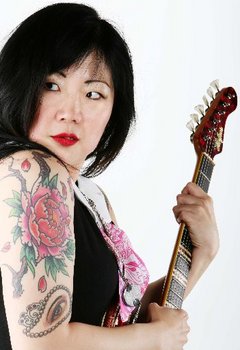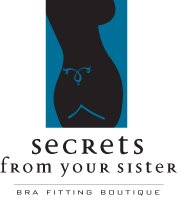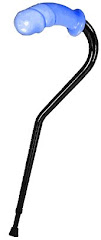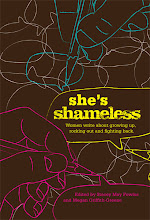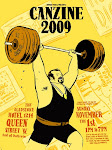The “F” word or the “F” bomb. If you drop this loaded word in public it can very possibly result in a nasty reaction. It’s a word of power. A word of strength, equality and respect. It’s a word that can be used for good, a word that educates, but it can also be misinterpreted. It should be a word that brings us together, but unfortunately it can result in a divide of understanding. The word is feminism.
Today I happened to hear a lot of women articulate what the word feminism meant to them, and it really opened my eyes to the diverse array of experiences and meanings this word encapsulates for each individual.

Sadly, many people today (especially young people) regard this term as a relic of the past. Society has turned feminism into the new “F” word. “Didn’t they burn bras?” people will enquire. “They’re man-haters or dykes,” is another crude, uneducated response. These are typical reactions, and not even the worst. If someone actually had the nerve to say, “Feminists just need a good fuck,” within earshot of me I would feel the need to blatantly express my offence, whether they claimed to be joking or not.
Feminism has been warped into a negative stereotype. People either don’t believe it is necessary, or they label it as something threatening, bitchy, or anti-male. If you really take a good look around at the world, and I say world because women’s rights is a global issue, not just a North American one, then you will see that we are not yet equal. But it can be hard for some people to see beyond their white, middle class, privileged, democratic bubble, living in a place like Canada or the United States.
The reality is that despite living in a democratic country, equality still doesn’t exist for all women: For women who immigrated from another country, who don’t speak english as their first language, who are single mothers, who don’t have access to safe, legal abortions, who are not provided with free, adequate sexual education, who are denied the use of birth control, Plan B, or other safe-sex options, who don’t look Caucasian, who are denied jobs based on their gender/race or appearance, who are not paid the same as men for work of equal value, who are not of a heterosexual orientation, who are not able-bodied, who support a family while working a full-time, minimum wage job, who are below the poverty line, who are oppressed due to religious and cultural family traditions, who have been verbally assaulted on the streets or transit system, who have been sexually, emotionally, financially and spiritually abused, who don’t feel safe walking alone at night, who were discouraged from pursuing jobs predominantly filled by men, who feel fat every time they look at an advertisement, who are told by the media that they need to constantly strive to fit the “beauty” standard, who are encouraged to enhance their bodies through plastic surgery, who are told that once they get wrinkles and grey hairs they can no longer be sexy or beautiful, who are made to believe that if they sleep with multiple sexual partners they are a slut, and if they refuse they are a frigid prude, who feel pressured to try every acne cream, weight loss pill and lip plumper on the market, who are forced to fill the domestic role in their household, who encounter a glass ceiling in workplace promotions, who work long hours in unsafe conditions with no benefits, who are called bitch, cunt, or whore, degradingly based on gender, and who encounter sexist stereotypes based solely on their looks or background.

For all these women and many more, we are not treated as equals. Feminism has come a long way in fighting for women’s rights, but there are still many areas that need to improve in order for women to truly have control over their bodies, sexuality, safety, jobs, education and social encounters. The unjust experiences that women endure don’t cease to exist outside your city, province, or country. They connect us all, and should carry the same significance no matter where they occur.
To me, being a feminist means feeling empowered in your womanhood, in your own beauty, worth, and intelligence without basing your value on the traditional standards of femininity that we may have grown up with. For me feminism is about having control over your reproductive health, sexual expression and your body.

It’s about knowing that you don’t have to model the projected “norm” in society in order to be considered a woman. You needn’t feel like you have to paint your nails, shave your armpits, pluck your eyebrows, scrub toilets on a regular basis, follow all the latest fashion trends, cook a 4 course meal flawlessly, single-handedly raise your children, or please your man in bed with 10 sexy techniques, unless that’s what you want to do. Feminism is about being your own person, living by your own standards and realizing that you are not bound by the female gender norms created by society.
The word also doesn’t exclude men, in my opinion. If a man stands behind women’s rights, and advocates actively for equality through thoughts, words or actions then I believe he is a feminist. Regardless of having privilege or not, there are men who aren’t ashamed to call themselves a feminist, and I think that’s a very admirable thing that shouldn’t be discouraged by making feminism a gender exclusive term. There’s nothing that can be gained by pushing people away from a positive belief, only something to be lost.

Feminism means something different to everyone, whether you classify yourself as a liberal, radical, marxist, something undefined or in between the spectrums. The word encompasses a unique set of core values and beliefs for each individual. It could sum up your entire personality or only represent one part of the way you see yourself. Either way, the next time you hear feminism being referred to as the “F” word, consider how it is expressed in your thoughts, values or actions. How do you define it?

 Sadly, many people today (especially young people) regard this term as a relic of the past. Society has turned feminism into the new “F” word. “Didn’t they burn bras?” people will enquire. “They’re man-haters or dykes,” is another crude, uneducated response. These are typical reactions, and not even the worst. If someone actually had the nerve to say, “Feminists just need a good fuck,” within earshot of me I would feel the need to blatantly express my offence, whether they claimed to be joking or not.
Sadly, many people today (especially young people) regard this term as a relic of the past. Society has turned feminism into the new “F” word. “Didn’t they burn bras?” people will enquire. “They’re man-haters or dykes,” is another crude, uneducated response. These are typical reactions, and not even the worst. If someone actually had the nerve to say, “Feminists just need a good fuck,” within earshot of me I would feel the need to blatantly express my offence, whether they claimed to be joking or not. For all these women and many more, we are not treated as equals. Feminism has come a long way in fighting for women’s rights, but there are still many areas that need to improve in order for women to truly have control over their bodies, sexuality, safety, jobs, education and social encounters. The unjust experiences that women endure don’t cease to exist outside your city, province, or country. They connect us all, and should carry the same significance no matter where they occur.
For all these women and many more, we are not treated as equals. Feminism has come a long way in fighting for women’s rights, but there are still many areas that need to improve in order for women to truly have control over their bodies, sexuality, safety, jobs, education and social encounters. The unjust experiences that women endure don’t cease to exist outside your city, province, or country. They connect us all, and should carry the same significance no matter where they occur. It’s about knowing that you don’t have to model the projected “norm” in society in order to be considered a woman. You needn’t feel like you have to paint your nails, shave your armpits, pluck your eyebrows, scrub toilets on a regular basis, follow all the latest fashion trends, cook a 4 course meal flawlessly, single-handedly raise your children, or please your man in bed with 10 sexy techniques, unless that’s what you want to do. Feminism is about being your own person, living by your own standards and realizing that you are not bound by the female gender norms created by society.
It’s about knowing that you don’t have to model the projected “norm” in society in order to be considered a woman. You needn’t feel like you have to paint your nails, shave your armpits, pluck your eyebrows, scrub toilets on a regular basis, follow all the latest fashion trends, cook a 4 course meal flawlessly, single-handedly raise your children, or please your man in bed with 10 sexy techniques, unless that’s what you want to do. Feminism is about being your own person, living by your own standards and realizing that you are not bound by the female gender norms created by society. Feminism means something different to everyone, whether you classify yourself as a liberal, radical, marxist, something undefined or in between the spectrums. The word encompasses a unique set of core values and beliefs for each individual. It could sum up your entire personality or only represent one part of the way you see yourself. Either way, the next time you hear feminism being referred to as the “F” word, consider how it is expressed in your thoughts, values or actions. How do you define it?
Feminism means something different to everyone, whether you classify yourself as a liberal, radical, marxist, something undefined or in between the spectrums. The word encompasses a unique set of core values and beliefs for each individual. It could sum up your entire personality or only represent one part of the way you see yourself. Either way, the next time you hear feminism being referred to as the “F” word, consider how it is expressed in your thoughts, values or actions. How do you define it?



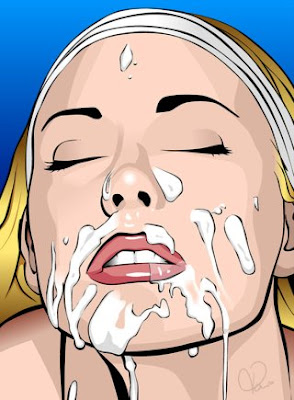 If some women relish having semen on their face, tits or ass, well, power to them, they have a right to enjoy and participate in that on screen if they so choose, and any woman at home has the privilege of revelling in observing it. What makes one woman a feminist isn’t true for another, so trying to fit every single sexual act under some umbrella “feminist” definition isn’t likely to happen anytime soon. Spanking, bondage, and many other kinks are specific to your arousal, so this discussion will likely continue for as long as porn does.
If some women relish having semen on their face, tits or ass, well, power to them, they have a right to enjoy and participate in that on screen if they so choose, and any woman at home has the privilege of revelling in observing it. What makes one woman a feminist isn’t true for another, so trying to fit every single sexual act under some umbrella “feminist” definition isn’t likely to happen anytime soon. Spanking, bondage, and many other kinks are specific to your arousal, so this discussion will likely continue for as long as porn does.





